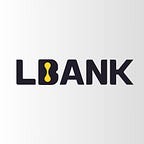Common Crypto Terms Every Trader Should Know — Part 1
Following the debut of Bitcoin, trading in the cryptocurrency market has become enormously popular. This essentially involves taking a financial position on the price direction of individual cryptocurrencies against an underlying asset (USD or Crypto).
Cryptocurrency trading involves a market where tons of data and patterns can change within a few seconds. So it isn’t surprising that crypto traders use several crypto lingo, terms, and acronyms to describe many market scenarios. These terms are usually certain concepts of crypto trading, market conditions, price histories, trading management, or general finance.
Obviously, If you are new to crypto, these terms may cause confusion. Therefore, this guide explains some widely-known terms every crypto trader/investor should know.
8 Common Crypto Terms
- Fear Of Missing Out (FOMO)
Simply put, FOMO is a short form for ‘fear of missing out.’
The term reflects the current emotions of traders. It’s a popular
experience many investors feel, usually when the market is bullish. The emotions when you look at the market charts and see huge greens, and you don’t own that coin, so you sell your holdings to get on the trend.
A common example of crypto FOMO to many was Dogecoin’s huge volatile fluctuations in 2021. The recent Twitter CEO Elon Musk’s tweets about Dogecoin caused FOMO among millions of crypto traders not holding Doge at the time. During this time, the famous meme coin, on various occasions, experienced a sharp rise or fall in price depending on how the market participants understood the content in tweets of Musk.
Overall, FOMO revolves around making a potentially profitable move based on random hypes, not in-depth research, before buying into any cryptocurrency.
- Whales
These are the big players in the market; people holding a significantly high percentage of the market supply of a coin. A whale is also used to describe the most valuable Bitcoin addresses. Currently, there are more than 2,000 Bitcoin whale addresses, with three users owning over 100,000 BTC.
The big players have been the ones pushing for Bitcoin since its early days. Some Bitcoin whales include Tim Draper, Barry Silbert and the Winklevoss twins.
- Do Your Own Research (DYOR)
As the name implies, in cryptocurrency, DYOR (Do Your Own Research) means conducting market fundamental analysis (FA). DYOR is a term to encourage users to perform their own research and not rely on someone else’s market analysis. It’s pretty similar to the conventional phrase “Don’t trust, Verify.”
The crypto market is filled with several price predictions, which are not totally accurate, so to be a successful trader, it’s essential to do your own fundamental analysis (FA) and draw your own conclusions. Developing your own trading strategies is very important to make profitable crypto trades.
- Mooning
If you’re active on several crypto-friendly social platforms like Twitter, you have probably come across the phrase “to the moon” and wondered what it meant. Simply put, going to the moon means that the price of a particular crypto is believed to experience significant growth in the future.
If you say that LBK coin is going to the moon, it means that you believe buying LBank’s native token on its exchange is going to turn out well in the coming years.
- Pump and Dump
This is a scheme whereby the price of a crypto asset is overvalued based on illicit information, false price predictions and confusing statements. The term is often used by a particular sect of cryptocurrency traders to manipulate trading indicators and confuse traders.
To pump basically means to boost the hype surrounding a coin based on false data, and when the prices rise due to increased market sentiment, the culprit behind the pump will dump all their coins by selling them. In contrast, this will cause the price to fall again significantly.
- Shill
“Shilling” basically means the biased promotion of a cryptocurrency for the person’s own personal gains. However, the word has been used in conventional markets and has become widely popular in crypto. Traders who shill coins try to entice other people to boost the value of the underperforming coins they have invested in. They try to convince other traders so the price would increase.
- HODL
HODL is a famous crypto term derived from a misspelling of “hold,” meaning buying and holding Bitcoin and other cryptocurrencies amidst any market condition. It’s a popular word to describe “hold on for dear life” among crypto users. The term was first discovered in a 2013 online post on a Bitcoin forum where the typo became visible.
The HODL strategy has also played out while in crypto trading, considering the long-term growth of Bitcoin, Ethereum (ETH) and other top cryptocurrencies.
- FUD
FUD is another famous crypto term and is an acronym for the emotions of “fear, uncertainty, and doubt.” The term describes a pessimistic mindset of the market, often used to spread doubts about a crypto coin and its potential. The collective term for users spreading FUD is “fudders.”
Wrapping Up
The massive volatility of the market has brought about several crypto lingos used to describe certain market conditions. Therefore, it’s essential to get familiar with these terms to understand the market.
Disclaimer: The opinions expressed in this blog are solely those of the writer and not of this platform.
